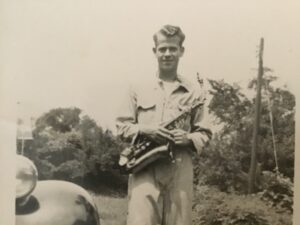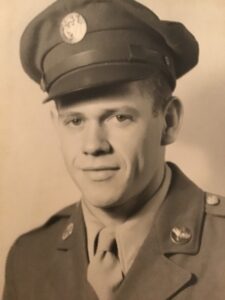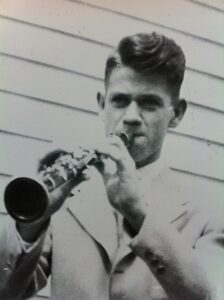Chapter 7
I was assigned to the Band School at Bolling Field in Washington, D.C. On my first day I was met by two officers, also musicians, who explained I was the only band member there so far. They asked me to play and I gave them some of my best jazz licks. They were thrilled. But when one of them put some printed music, a march, in front of me, I said “I’m sorry, sir, I don’t read music.” He said “Well then, you’ll just have to learn to read music.”
I was sent by bus to a professor in DC twice a week. Mr. Bouton would assign music that I’d practice every day in the latrine back at the barracks. During this time, I taught myself how to play the alto saxophone. And after about a year, I was up to snuff with reading music.

In DC, some musician friends and I went to hear Nat King Cole in a local club. He wasn’t famous yet. We enjoyed his music so much we went back again. Then again and after the third time he asked to come backstage and talk shop with him. He was a great guy.
Next, the military sent me to Fort Worth, Texas. One day, we were given a “GI Party” by the Sarge. Buckets of sand and water were sloshed on the floor. We were supposed to scrub till the floors were spotless, then clean the whole mess up. The guys got to it but said ”Play your clarinet for us, Frank.” I was wailing away when the Sarge walked in on us… I got KP. I went from shredding jazz to peeling potatoes that day.

I played clarinet in the 448th Air Force Concert Band there and alto sax in the jazz band. I was a featured soloist in a USO concert. I felt like a star, and it often felt like some other kind of force was guiding my life.

🔹 At that time, clarinet was often a featured soloist, a la Benny Goodman, Artie Shaw, Jerry Wald… whereas alto sax was considered a lead instrument in a homogenous woodwind section of a Big Band.